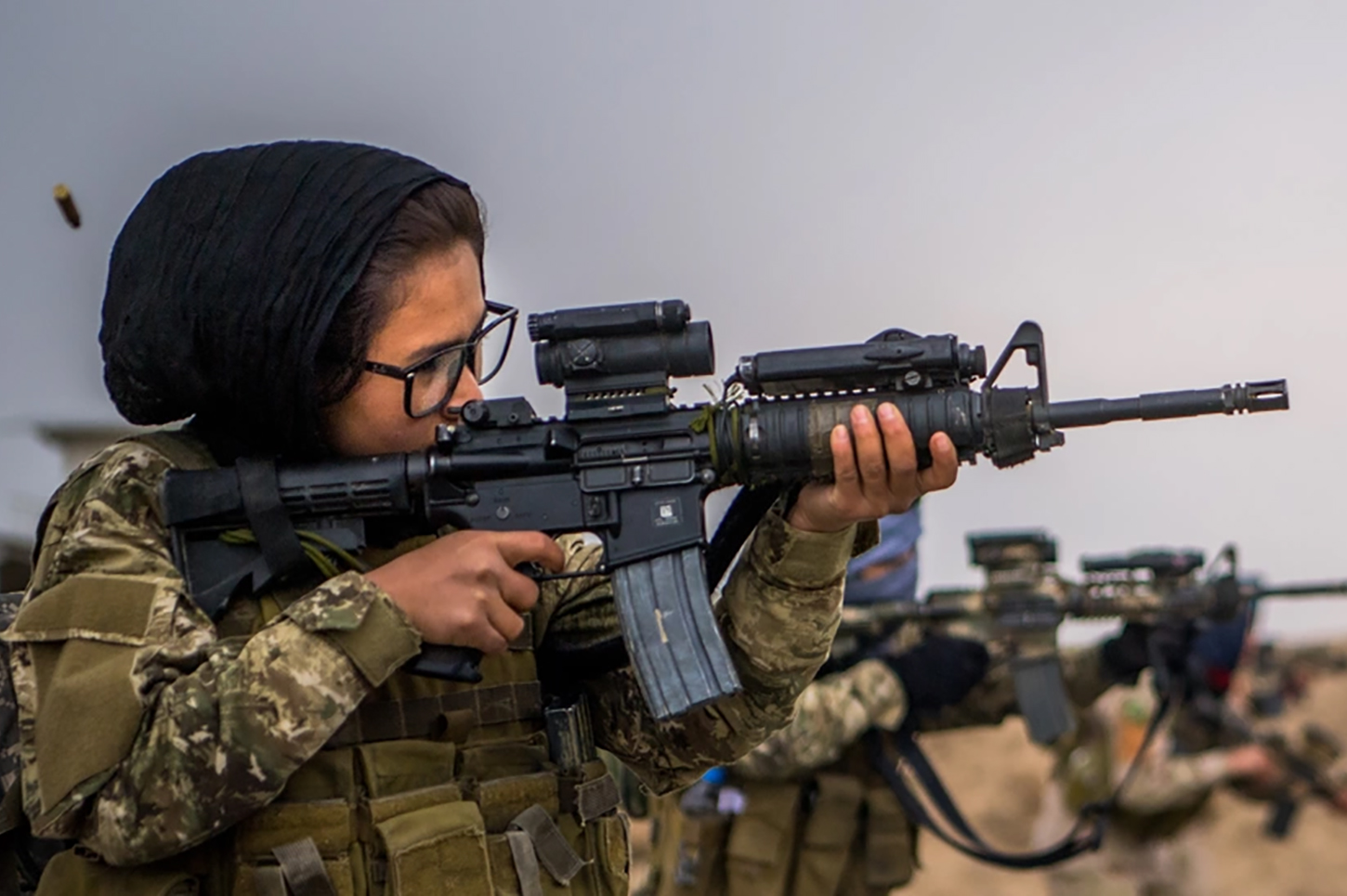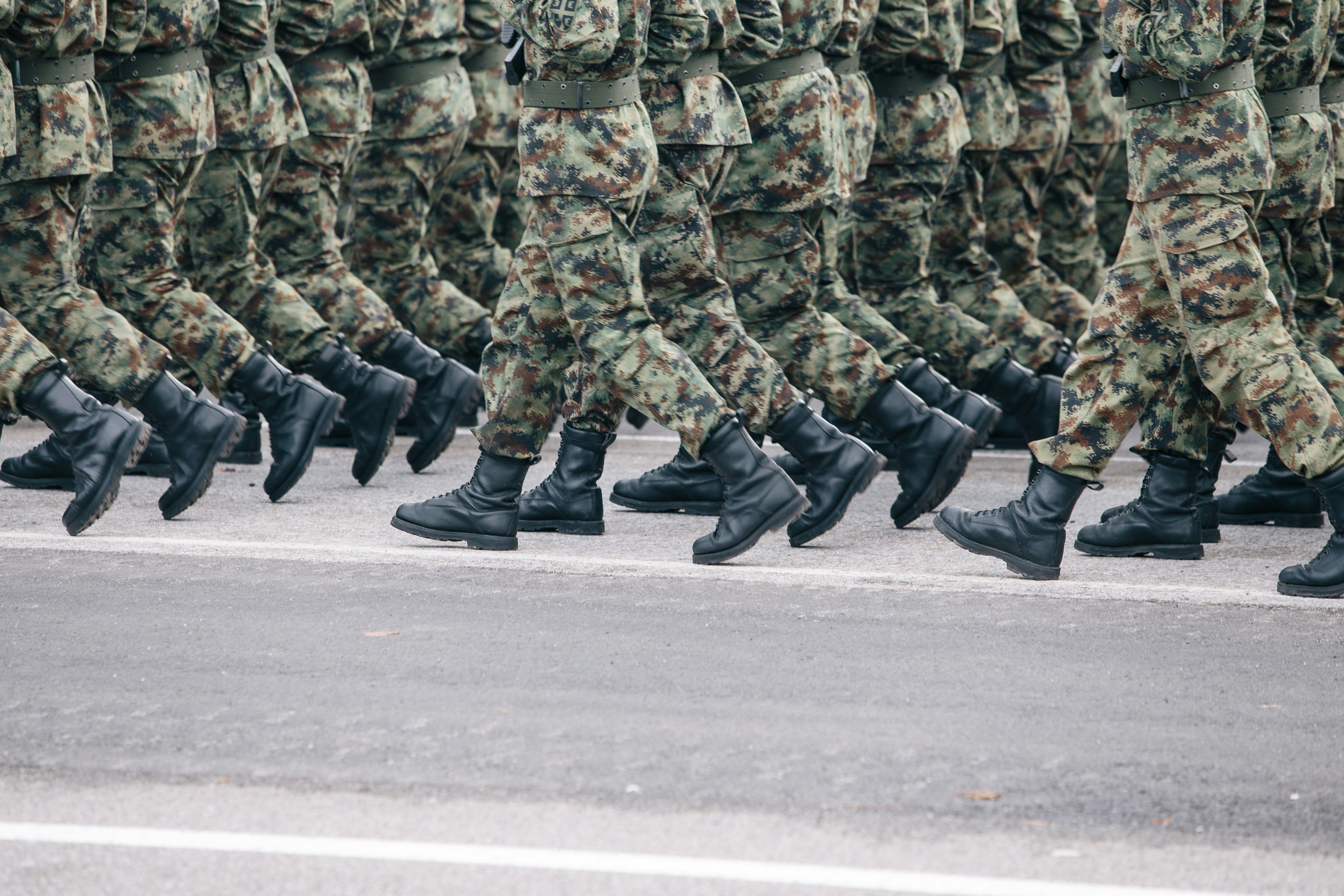Afghan Soldiers who fought with US military seek legal immigration status
Afghan soldiers who risked lives serving alongside US troops fight to stay in country as two-year humanitarian parole status is set to expire in August

Mahnaz Akbari was the trailblazing commander of the all-female squad that accompanied elite US Special Operations troops on missions that included hunting ISIS combatants and freeing captives from Taliban jails. Akbari and her fellow Afghan soldiers did so at great personal risk, with one woman being shot through the neck and another killed shortly before the fall of Kabul.
The Taliban took over the country, and many members of the platoon were forced to flee to the US. Now, Akbari and other members of the Female Tactical Platoon are working to convince Congress that their service in Afghanistan has earned them the right to stay in America permanently.
Female soldiers who risked their lives serving alongside American troops in Afghanistan are fighting to stay in the US as their two-year humanitarian parole status is set to expire in August. The women, who were part of the Afghan National Army’s Female Tactical Platoon, are seeking permanent residency in America. They have been meeting with lawmakers on Capitol Hill to try and revive legislation aimed at addressing their precarious immigration status.
The Afghan Adjustment Act would have created a legal pathway to permanent residency for Afghans who helped Americans during the conflict. The act stalled due to Republican concerns about vetting, among other things. About 82,000 Afghans have been evacuated to the US since the fall of Kabul, and most have been living in legal limbo with no authorization to remain long-term.
The legislation would have also created a pathway to permanent residency for four specific groups: The Afghanistan National Army Special Operations Command, the Afghan Air Force, the Special Mission Wing of Afghanistan, and the Female Tactical Teams of Afghanistan. Republican support is growing for the legislation, and the women are urging lawmakers to keep fighting for those left behind.
A meeting with the women, Erin Chapman, senior counsel to Senator Amy Klobuchar, said the legislation already contained changes requested by Republican senators last Congress for “additional vetting” of the Afghans to be conducted by the Defense Department. Mary Kolars, an Army captain who led the Cultural Support Team in Afghanistan and worked closely with the Afghan women, asked Chapman about safety concerns for the family members of the platoon, most of whom were left behind in Afghanistan.
Efforts to get the women a pathway to permanent residency are in some ways simply closing a loophole, their allies say. Contractors such as translators and fixers who worked directly for the US government are eligible for Special Immigrant Visas, while soldiers who were paid directly by the Afghan government are not. Kolars and Akbari are Hazara women who have sacrificed for their country and theirs.
After the fall of Kabul, the Taliban confiscated their paperwork, but the information remained in Afghan government files. A network of mostly female American soldiers rallied to help them evacuate, but now they are working at Chick-fil-A, baristas, and grocery stores. Akbari is ready to do it all over again if granted her green card, she said, she will join the US Army.






.jpg)
Conversation